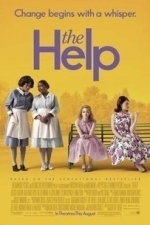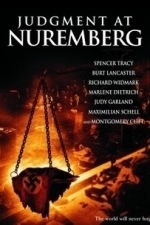Search
Search results
Abigail Breslin recommended The Help (2011) in Movies (curated)
MissCagey (2652 KP) rated The 15:17 To Paris (2018) in Movies
Jan 22, 2019
This film started by showing the boys growing up, their mischief in school, their personalities forming and the relationships with their families. Not having heard of the incident or the people involved, because of their naughtiness at school I did wonder whether one of the main characters was going to turn out to be the terrorist at first!
I thought it was great that the heroes played themselves in this film. It gave it more realism- they were the ones who were there after all! How hard it must have been for them to relive what happened, especially Spencer Stone who was the out and out hero.
I was engrossed throughout.
I thought it was great that the heroes played themselves in this film. It gave it more realism- they were the ones who were there after all! How hard it must have been for them to relive what happened, especially Spencer Stone who was the out and out hero.
I was engrossed throughout.
Gareth von Kallenbach (980 KP) rated The 15:17 To Paris (2018) in Movies
Jul 8, 2019
Based on book, The 15:17 to Paris: The True Story of a Terrorist, a Train, and Three American Soldiers by Jeffrey E. Stern, Spencer Stone, Anthony Sadler and Alek Skarlatos, the film, The 15:17 to Paris tells the story of three America friends who stop a terrorist attempt on a train to Paris.
The men are heroes and it is inspiring to see how ordinary people can step up and put their lives at risk to save lives.
As such, this film would have been better told as a short documentary. Mostly because I found myself wondering what these men were thinking in those moments. How were they feeling when they saw people running and heard a gunshot. What made them take action? Was there doubt? And how did their friendship/bond contribute to being able to support each other in that moment and after?
Unfortunately, we do not get the answers to these questions. Instead Director Clint Eastwood decided to make a film that was trying to imitate real life as much as possible. So much so, the three actual heroes Stone, Sadler and Skarlatos play themselves. If Eastwood’s goal was to show how mundane life is in every day moments and a terrorist attack can happen at any moment in any mundane situation and end just as quickly, he succeeded. These three friends have cringe worthy dialogue that goes nowhere throughout the story. It makes these real life friends feel like they do not have any chemistry as it is clear they all feel out of their element in front of the camera. Not exactly the level of amateurism you would expect from a full feature film.
The semi bright spot is when we are shown how these three men became friends as boys and how they grew up. We get an understanding of how they like to play “war” in their back yard and how they would get in trouble but still have each other’s back when it counted. However, like the rest of this film, I wish this was told as a documentary or dramatic documentary. I wanted to hear from them firsthand what they thought about their friendship and how it evolved.
Stone, Sadler and Skarlatos are Heroes. They deserve better than this film. These three men deserve an opportunity to have their story told so people everywhere can care and understand. One of them had a call to duty because of his grandfather who served in WWII. What did that truly mean to him? We don’t know. One felt like he was being pushed to greatness by the universe. What did that mean to him now that it’s happened? We don’t know because we don’t hear from him first hand. The other was always just looking to have a good time. How does he feel about what happened and his friends? We don’t know. Because we are never given anything buy hollow dialogue, some loose information to surmise these things and bad screen chemistry from three real life friends.
I left the movie in awe of what the trio did in a moment where most people would run or think only of themselves. But I cannot in good faith recommend anyone spend money at a theater for a film that feels like it was produced by an amateur and should have been premiered on YouTube.
The men are heroes and it is inspiring to see how ordinary people can step up and put their lives at risk to save lives.
As such, this film would have been better told as a short documentary. Mostly because I found myself wondering what these men were thinking in those moments. How were they feeling when they saw people running and heard a gunshot. What made them take action? Was there doubt? And how did their friendship/bond contribute to being able to support each other in that moment and after?
Unfortunately, we do not get the answers to these questions. Instead Director Clint Eastwood decided to make a film that was trying to imitate real life as much as possible. So much so, the three actual heroes Stone, Sadler and Skarlatos play themselves. If Eastwood’s goal was to show how mundane life is in every day moments and a terrorist attack can happen at any moment in any mundane situation and end just as quickly, he succeeded. These three friends have cringe worthy dialogue that goes nowhere throughout the story. It makes these real life friends feel like they do not have any chemistry as it is clear they all feel out of their element in front of the camera. Not exactly the level of amateurism you would expect from a full feature film.
The semi bright spot is when we are shown how these three men became friends as boys and how they grew up. We get an understanding of how they like to play “war” in their back yard and how they would get in trouble but still have each other’s back when it counted. However, like the rest of this film, I wish this was told as a documentary or dramatic documentary. I wanted to hear from them firsthand what they thought about their friendship and how it evolved.
Stone, Sadler and Skarlatos are Heroes. They deserve better than this film. These three men deserve an opportunity to have their story told so people everywhere can care and understand. One of them had a call to duty because of his grandfather who served in WWII. What did that truly mean to him? We don’t know. One felt like he was being pushed to greatness by the universe. What did that mean to him now that it’s happened? We don’t know because we don’t hear from him first hand. The other was always just looking to have a good time. How does he feel about what happened and his friends? We don’t know. Because we are never given anything buy hollow dialogue, some loose information to surmise these things and bad screen chemistry from three real life friends.
I left the movie in awe of what the trio did in a moment where most people would run or think only of themselves. But I cannot in good faith recommend anyone spend money at a theater for a film that feels like it was produced by an amateur and should have been premiered on YouTube.
RəX Regent (349 KP) rated Judgment at Nuremberg (1961) in Movies
Feb 19, 2019
“He that is without sin among you, let him cast the first stone at her.”
It has been over 20 years since I first saw this as teenager, but watching it again with little memory of the specifics, I was both a little disappointed but also very impressed.
With a title like “Judgement at Nuremberg,” you can be forgiven for expecting a film about the trial of the Concentration Camp guards or Hermann Goering, but instead we are given something much more subtle and subversive. This follows a fictionalised account of the “Judges Trial”.
Here, Spencer Tracey’s U.S. Judge leads a panel of three peers as they preside over a trial of four NAZI judges, the focus of their crimes is not of there actions during the war but those in the mid 1930’s and their perversions of justice in aiding Hitler’s NAZI’s to oppress their own people.
The film also asked a myriad of uncomfortable questions, not only taking aim at the long dead National Socialist movement, but the world as a whole, including the U.S.A. Sighting parallels from Allied nations who claim cultural superiority after winning the war yet only being a stone’s throw away from the same attitudes.
But this is not just subverting the perceptions of jurist prudence, it is a drama, a head to head between Tracey and his German counterpart in the doc, Bert Lancaster. It is also a vehicle for a host of Oscar worthy performances from an all star cast, ALL of which excel in their roles, some more subtly than others.
The standouts are Montgomery Cliff and Judy Garland, both of whom would pass away soon after this film was release at relatively young ages. Kramer’s cinematography is impressive too, as it keeps the camera moving around the courtroom through the lengthy cross-examination scenes, keeping the tension high and the interest alive through this three-hour drama.
With a healthy dose of melancholy, jaded and brutalised characters and foreshadowing the impending Cold War, this is a film which understands war and the often forgotten fact that even though Wars have a start and and end date, they take decades to build up and never really end.
With a title like “Judgement at Nuremberg,” you can be forgiven for expecting a film about the trial of the Concentration Camp guards or Hermann Goering, but instead we are given something much more subtle and subversive. This follows a fictionalised account of the “Judges Trial”.
Here, Spencer Tracey’s U.S. Judge leads a panel of three peers as they preside over a trial of four NAZI judges, the focus of their crimes is not of there actions during the war but those in the mid 1930’s and their perversions of justice in aiding Hitler’s NAZI’s to oppress their own people.
The film also asked a myriad of uncomfortable questions, not only taking aim at the long dead National Socialist movement, but the world as a whole, including the U.S.A. Sighting parallels from Allied nations who claim cultural superiority after winning the war yet only being a stone’s throw away from the same attitudes.
But this is not just subverting the perceptions of jurist prudence, it is a drama, a head to head between Tracey and his German counterpart in the doc, Bert Lancaster. It is also a vehicle for a host of Oscar worthy performances from an all star cast, ALL of which excel in their roles, some more subtly than others.
The standouts are Montgomery Cliff and Judy Garland, both of whom would pass away soon after this film was release at relatively young ages. Kramer’s cinematography is impressive too, as it keeps the camera moving around the courtroom through the lengthy cross-examination scenes, keeping the tension high and the interest alive through this three-hour drama.
With a healthy dose of melancholy, jaded and brutalised characters and foreshadowing the impending Cold War, this is a film which understands war and the often forgotten fact that even though Wars have a start and and end date, they take decades to build up and never really end.


